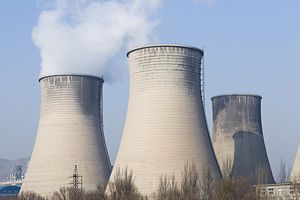China, the world’s largest polluter, has declared that for the first time it will impose an absolute limit on its carbon emissions. The announcement, coming a day after the United States said it would do the same, could lead to significant progress in struggling United Nations climate negotiations.
He Jiankun, chairman of China’s Advisory Committee on Climate Change, said June 3 that reductions in CO2 emissions, primarily from coal-fired power plants, will begin in 2016. “The government will use two ways to control CO2 emissions in the next five-year plan, by intensity and an absolute cap,” He said.
He didn’t say how high or low the emissions cap would be set.
China is the world’s biggest emitter of greenhouse gases, surpassing the United States in 2006.
Although this is the first time Beijing has promised to set absolute limits on emissions, it did set relative limits in 2009, shortly before the UN climate summit in Copenhagen. Those limits – 40 percent to 45 percent of the country’s economic growth by 2020, compared to 2005 levels – meant its actual emissions could rise as China’s economy grew.
UN climate talks have been stalled by deep disagreements between developed and developing countries. Poorer states argue that their growth shouldn’t be hampered by a reduction of inexpensive fuel such as coal, which richer nations have used abundantly to achieve their current status.
But now that the world’s two biggest polluters have announced unilateral programs for reducing greenhouse gases, there is some optimism about the climate talks in advance of a worldwide climate meeting on June 4 in Bonn.
“The Chinese announcement marks potentially the most important turning point in the global scene on climate change for a decade,” said Michael Grubb, a professor of international energy and climate policy at University College London.
Still, Australian National University climate economist Frank Jotzo, who attended the June 3 Beijing conference, cautioned that without details of the Chinese limits, Beijing’s promise may be merely symbolic and an attempt to compete with Washington for leadership on climate change.
This article was originally published at OilPrice.com. It is reprinted with permission.

































